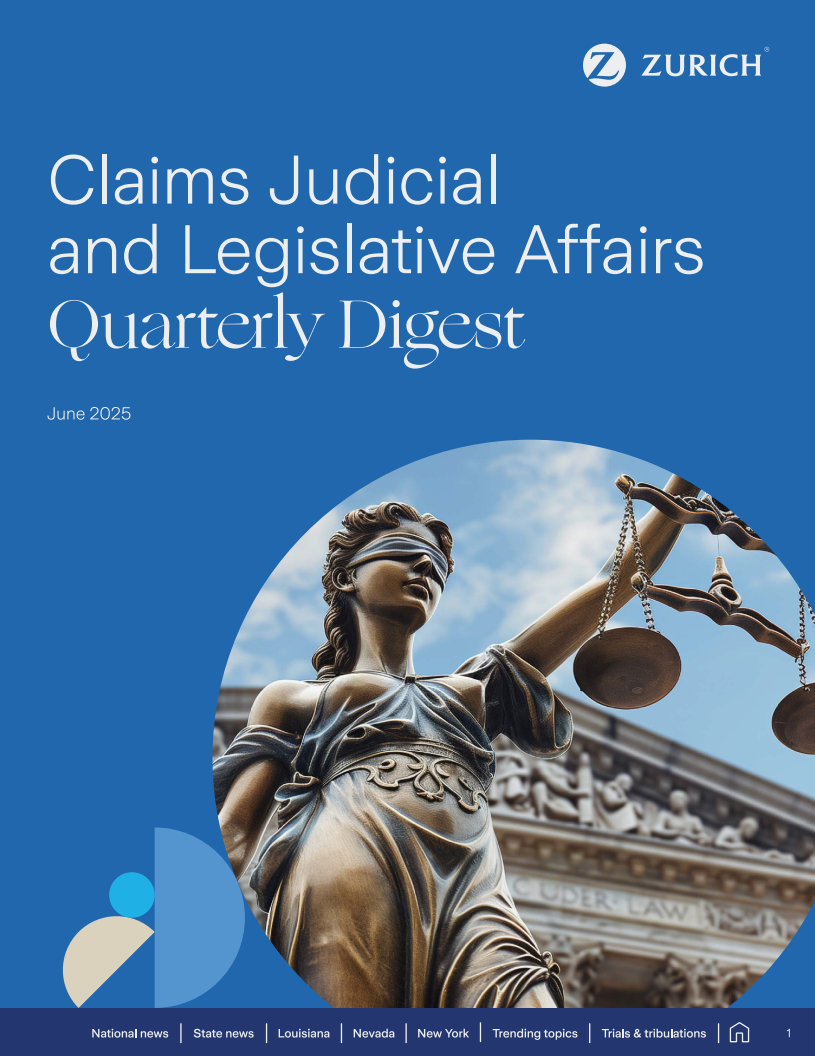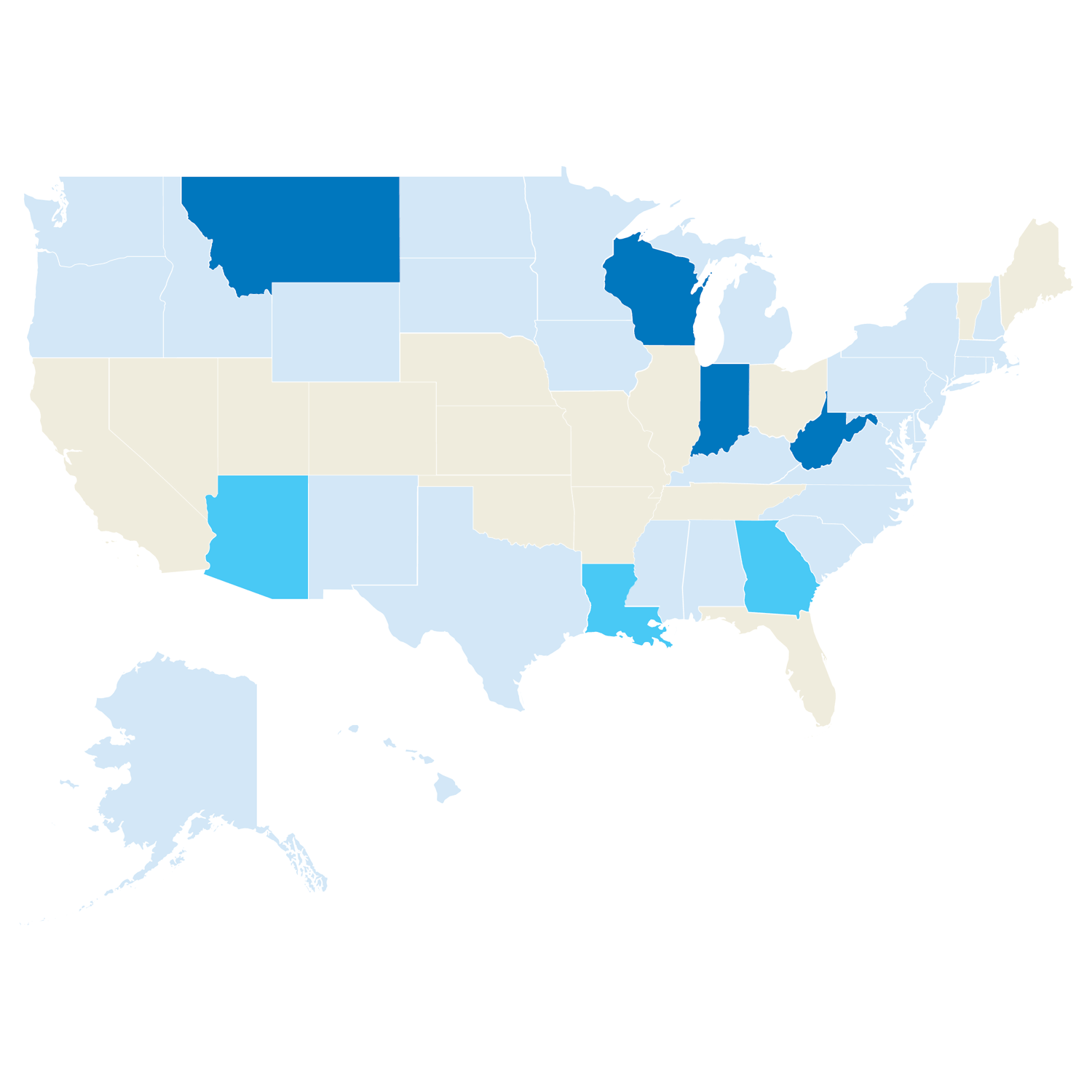
Welcome to Claims Judicial and Legislative Affairs (CJLA) at
Zurich North America (ZNA)
Explore our content to keep up to date on risk trends fueled by social inflation and lawsuit abuse.
Be informed and up to date.
Our communications highlight global, national, and state industry issues, trending topics, recent legislative enactments and judicial decisions that impact social inflation.
Quarterly Digest
Delves into issues which touch the industry on a global, national, and state level. Trending topics as well as successful trial tactics are also shared. The articles contain direct links for more in-depth information. The CJLA Quarterly Digest publishes once a quarter.

Regional Recap
Captures the latest legislative enactments and judicial decisions that impact social inflation and the insurance industry. For ease of use, these are indexed by region and by state with direct links to the exact legislation or citation.
Legislative
Department of Labor reclassifies terms “employee” and “independent contractor”
Effective March 1, 2024, under the Fair Labor Standards Act, the term “independent contractors” refers to “workers who, as a matter of economic reality, are not dependent on an employer for work at are in business for themselves.” The definition of employee includes “any person acting directly or indirectly in the interest of an employer in relation to an employee.” The purpose of the reclassification was so that the Department of Labor’s terms align more closely with the body of law from the federal courts. It uses a “totality-of-the-circumstances” analysis of the “economic reality” of labor.
Classification of PFAS Chemicals Grows
The Environmental Protection Agency (EPA) has designated the PFAS chemicals, perfluorooctanoic acid (PFOA) and perfluorooctanesulfonic acid (PFOS), as hazardous substances under the Comprehensive Environmental Response, Compensation, and Liability Act (CERCLA), also known as Superfund. With this designation, alleged polluters are subject to penalty to pay for clean up of contamination they caused. The EPA also has undertaken an effort to minimize human exposure to PFAS through drinking water by establishing a “drinking water standard” which is also known as the Safe Drinking Water Act. Additionally, the EPA has finalized rules with respect to processing PFAS as well as measuring it in the environment.
Judicial
High Court overturns four decades of precedent and eliminates Chevron doctrine
Since 1984, various courts have conducted the two-step analysis required under Chevron U. S. A. Inc. v. Natural Resources Defense Council, Inc., when faced with ambiguity in administrative statutes, ultimately deferring to an agency’s interpretation rather than provide judicial interpretation. This Chevron process requires the court to first determine if an agency statute is silent or ambiguous with respect to the specific issue brought before the court. Second, if that ambiguity exists, the court should then defer to the agency’s interpretation assuming that interpretation is based on a “permissible construction” of the statute. In Loper Bright Enterprises v. Raimondo, et al., the U.S. Supreme Court held that under the Administrative Procedure Act (APA) courts are instead required to exercise their independent judgment in deciding whether an agency has acted within its statutory authority. The Court then specifically overturned Chevron noting that the courts’ deference to a state agency violates the separation of powers. Ultimately, the Court determined that Chevron should be overturned as its holding violates the Court’s power under Article III to adjudicate cases and “say what the law is.”

Understanding TPLF
Questions
To join Zurich in combatting social inflation – or for questions or submission of topics for future issues – please contact Lisa Bellino
Social Inflation Podcasts
Our mission:
Social inflation is increasingly responsible for rising claims costs. This may affect how companies do business, interact with their communities, and connect with their customers. Zurich remains dedicated to working collaboratively with our customers, brokers, and risk mitigation industry members to tackle these challenges.
Education is only the beginning of the solution. Leveling the playing field requires that all be involved.